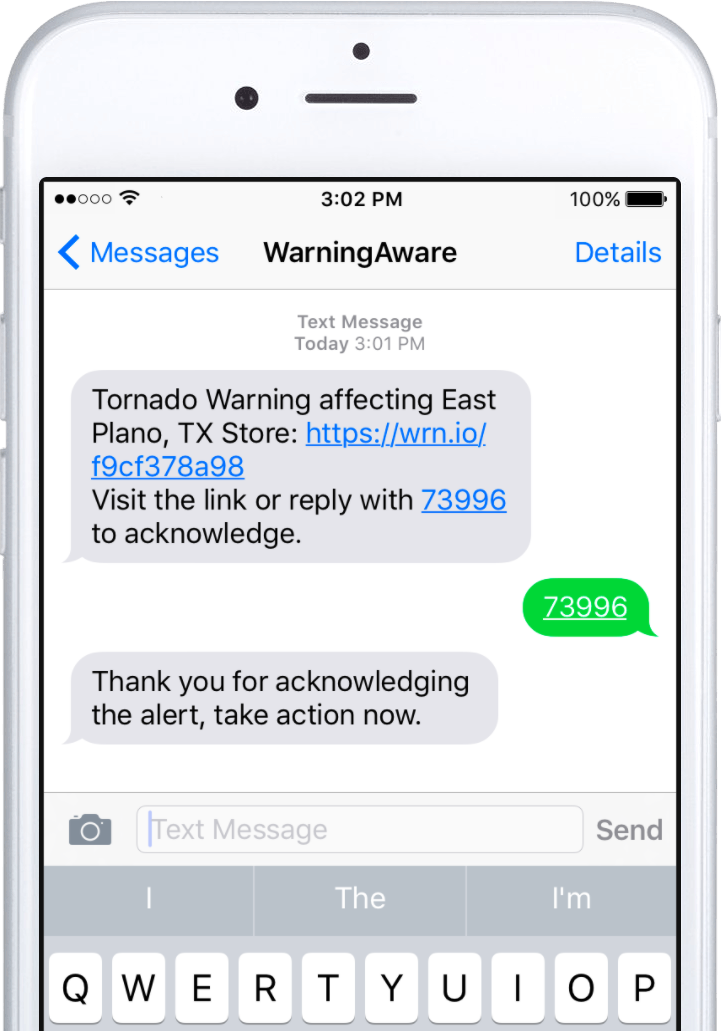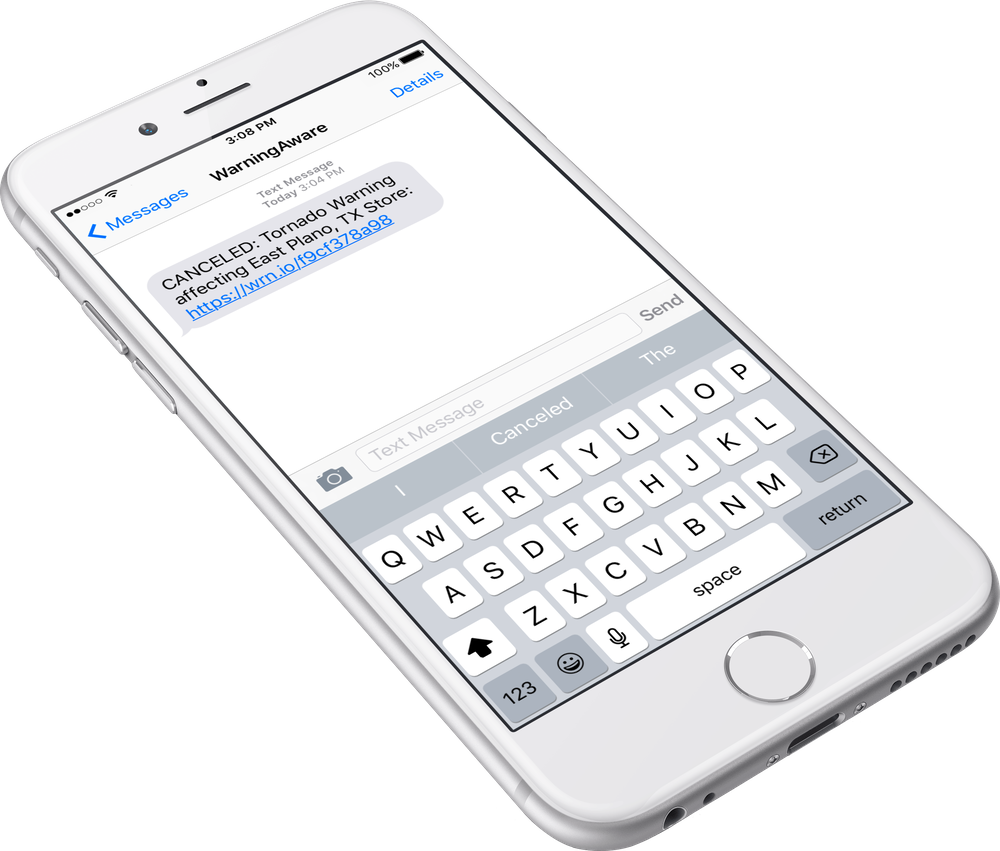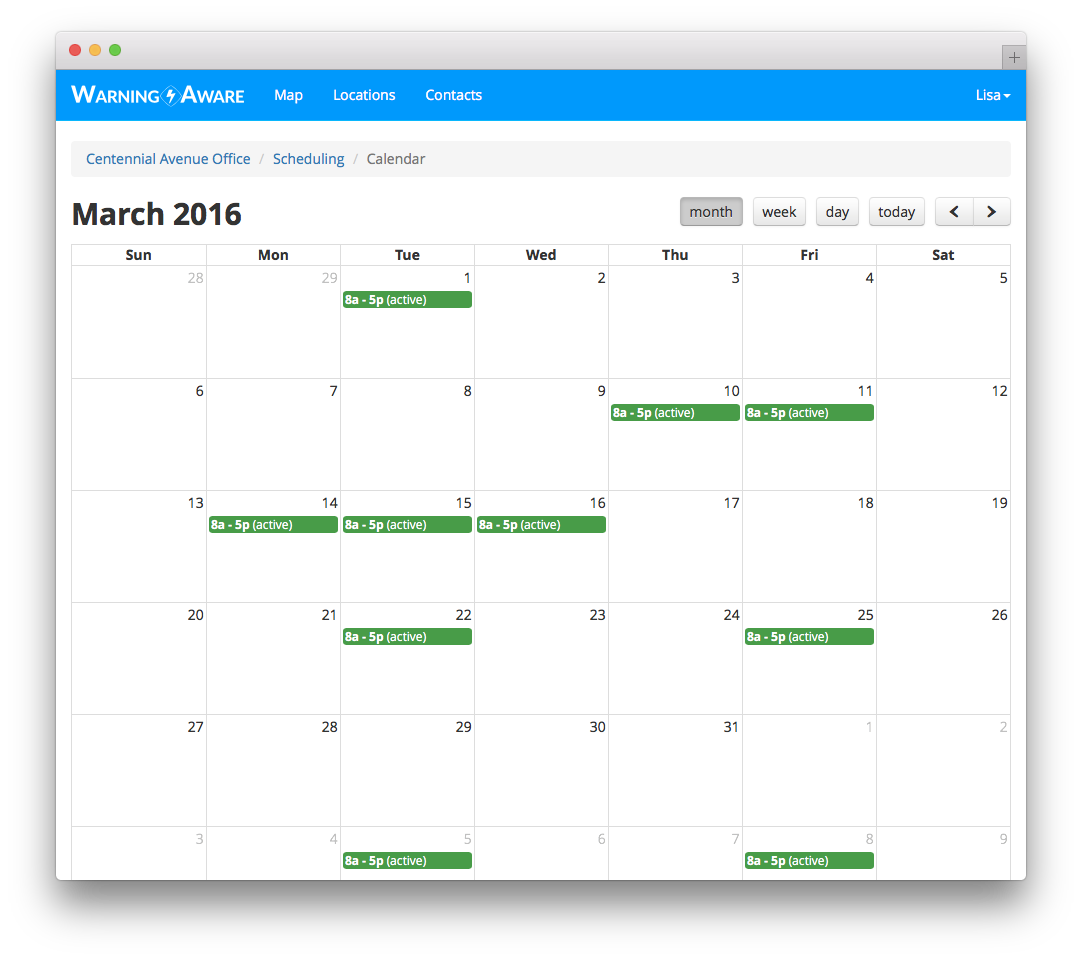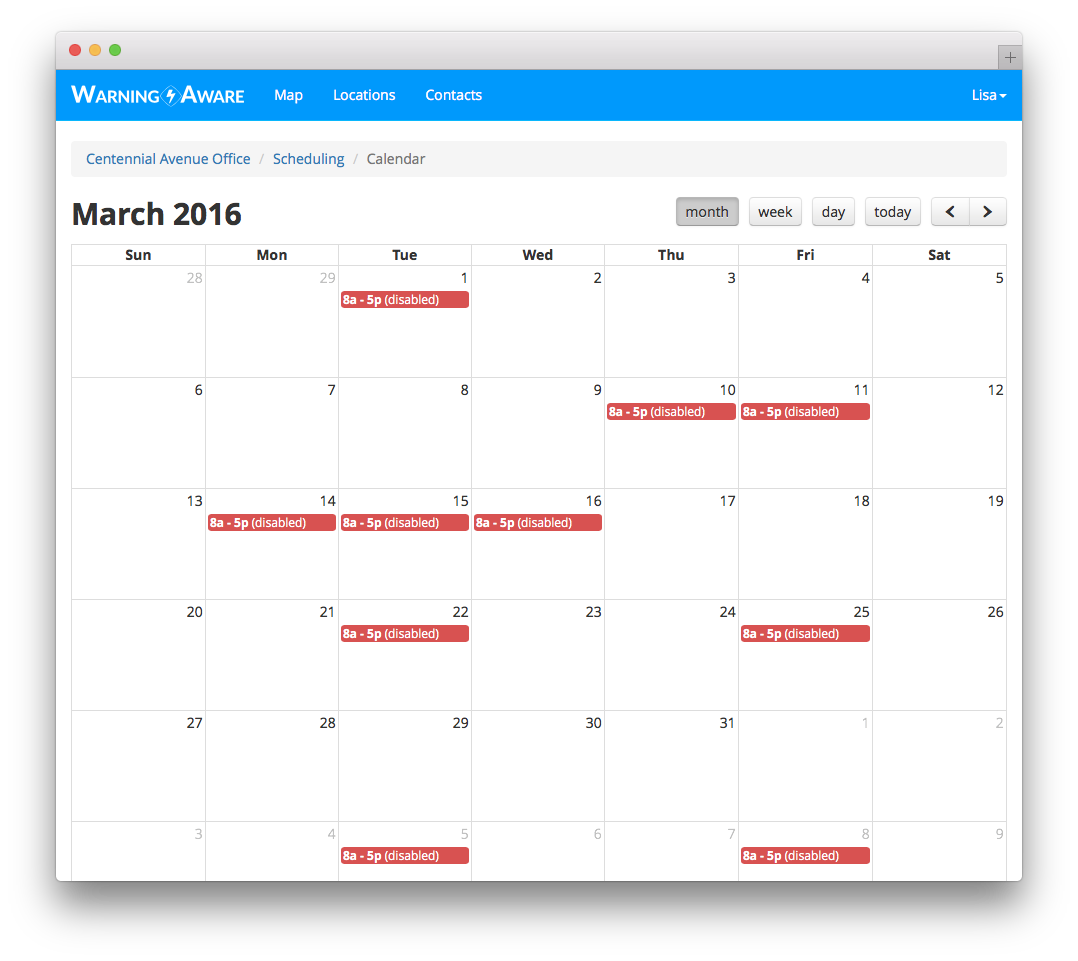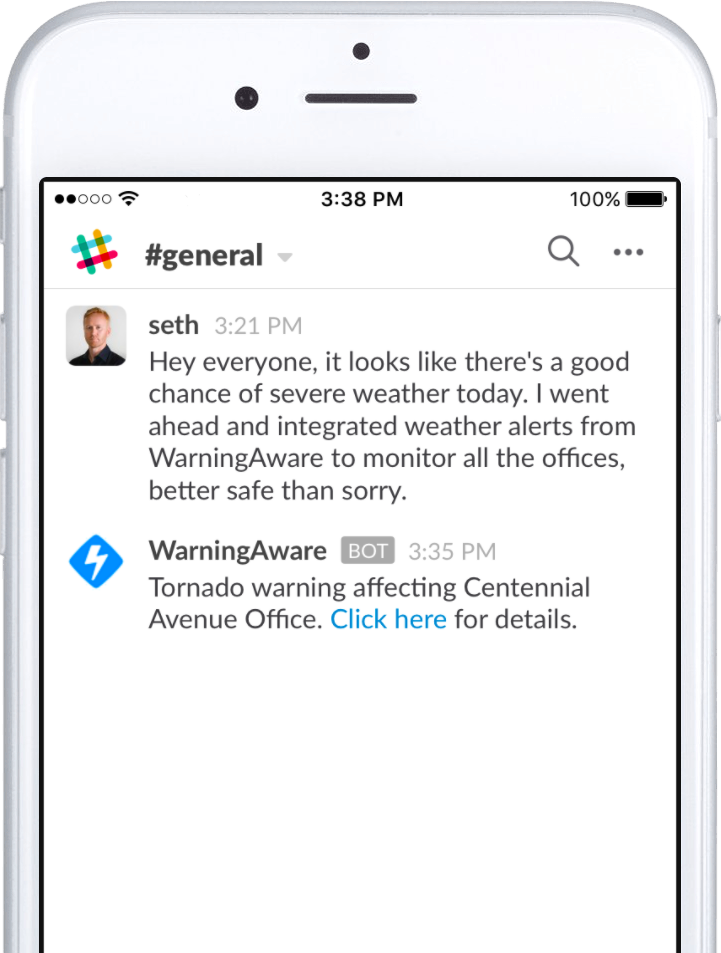A powerful platform for monitoring weather and emergency alerts.
Monitor weather alerts for multiple locations.
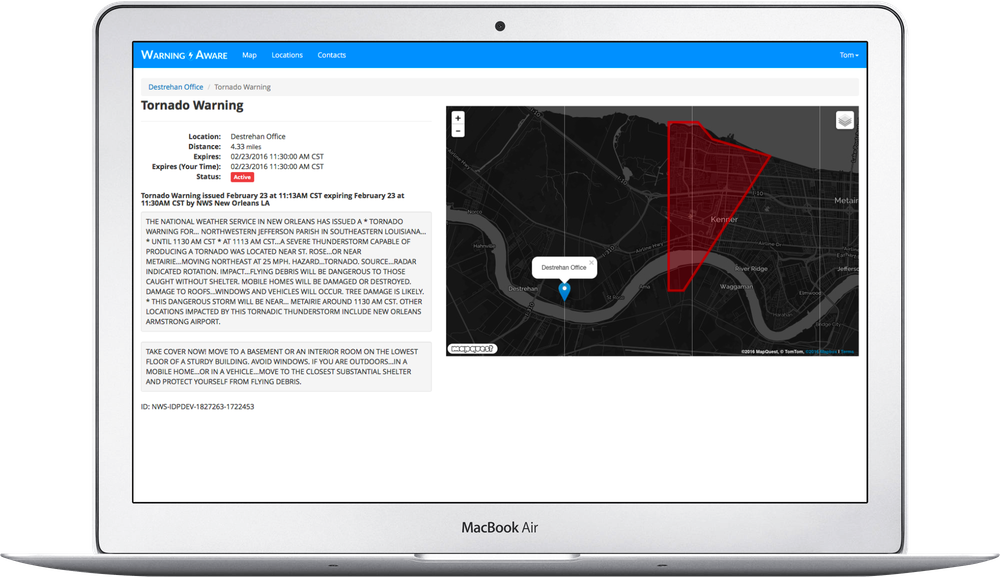
Map-driven.
Monitor precise addresses or buildings, not just zip codes like other services. Search by address or place name, or simply drag a pin on a map to mark the location you wish to monitor. Includes an interactive map of your locations and the alerts impacting them with high resolution weather radar.
Proximity-aware.
Monitor up to a 50 mile radius around each location. This radius can be customized for each type of alert. You can even define a minimum and maximum distance multiple times for the same alert type, allowing you to customize which notifications are sent and to whom based on the distance of a hazard.
Covers the entire United States.
Alerts coverage includes all US states and territories as well as coastal marine zones (including the Great Lakes). Configure notifications for over 130 different types of weather, law enforcement, and other emergency government alerts.
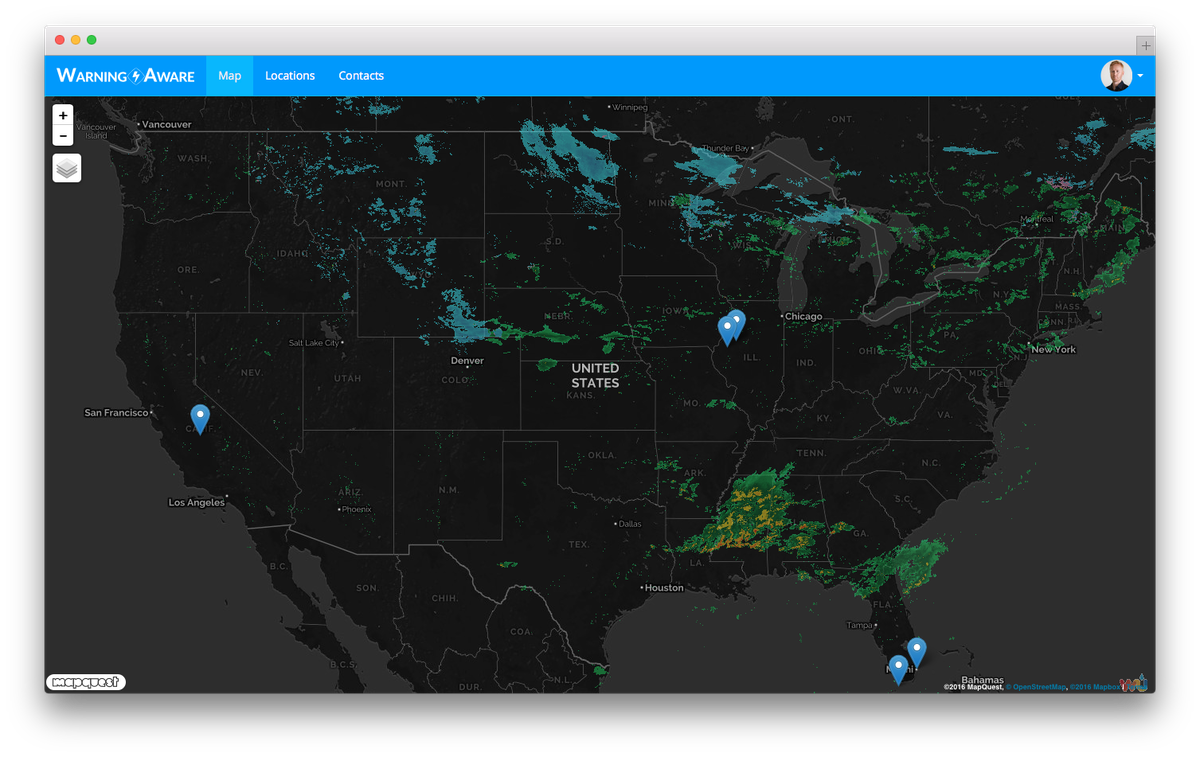
Alert proximity is matched with precision GIS shapes (polygons and circles).
Intelligent alert notifications.
Rule-based, targeted notification.
Optionally enable automatic escalation to insure the right people or devices are notified.
Require acknowledgment on notifications within a certain time and define backup contacts to receive alerts if no one is reached.
Mass notification (Broadcasts).
Broadcasts allow notifications to be sent to entire contact groups at once based on their preferred notification method, allowing for simplified approach to notification.
Notifications of alerts can be delivered via Text Message (SMS), Email, Voice Call, or Slack.
When it's all clear.
Follow-up notifications are sent when the alert expires or is canceled before the expiration.
In the case of rule-based notifications follow-ups are only sent to contacts who were previously notified of the alert.
Voice call alerts also include a text message a link to the alert if the device is capable of receiving texts.
Policy-based notification configuration.
You are in total control.
Policies define which alerts are relevant to a location and how notifications are sent for each alert type.
Configure as many policies as you like for each location, allowing you to handle every type of alert types how you want based on distance and schedule.
Automatic, manual, or both.
An automated setup process can guide you through generating policies for each location rather than manually building each policy. The results of this process can be further fine tuned if desired.
The automated setup process can be repeated multiple times to create layered policies based on distance.
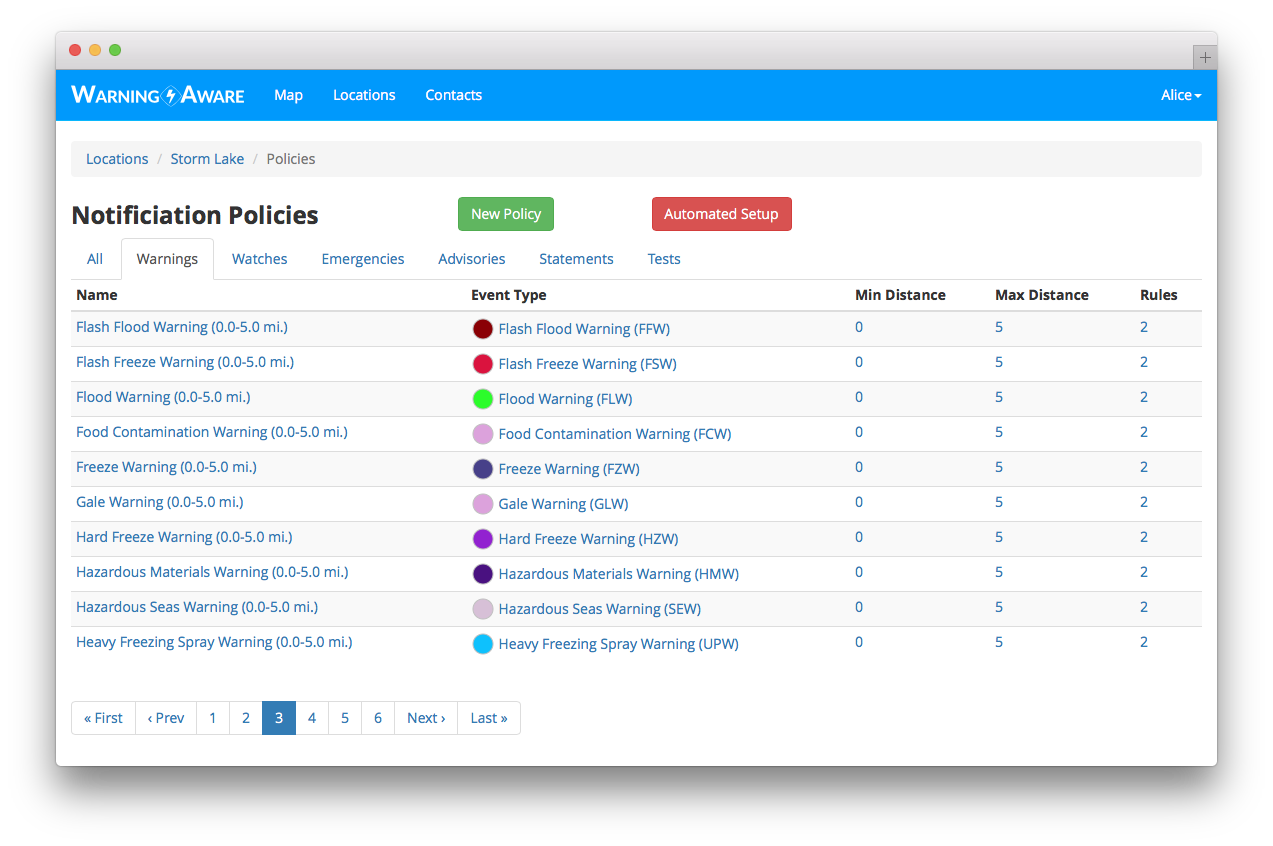
Alerts can be simulated to test your notification polices and see them in active before a real event occurs. Simulated alerts can also be used for periodic safety drills.
Flexible scheduling to fit your requirements.
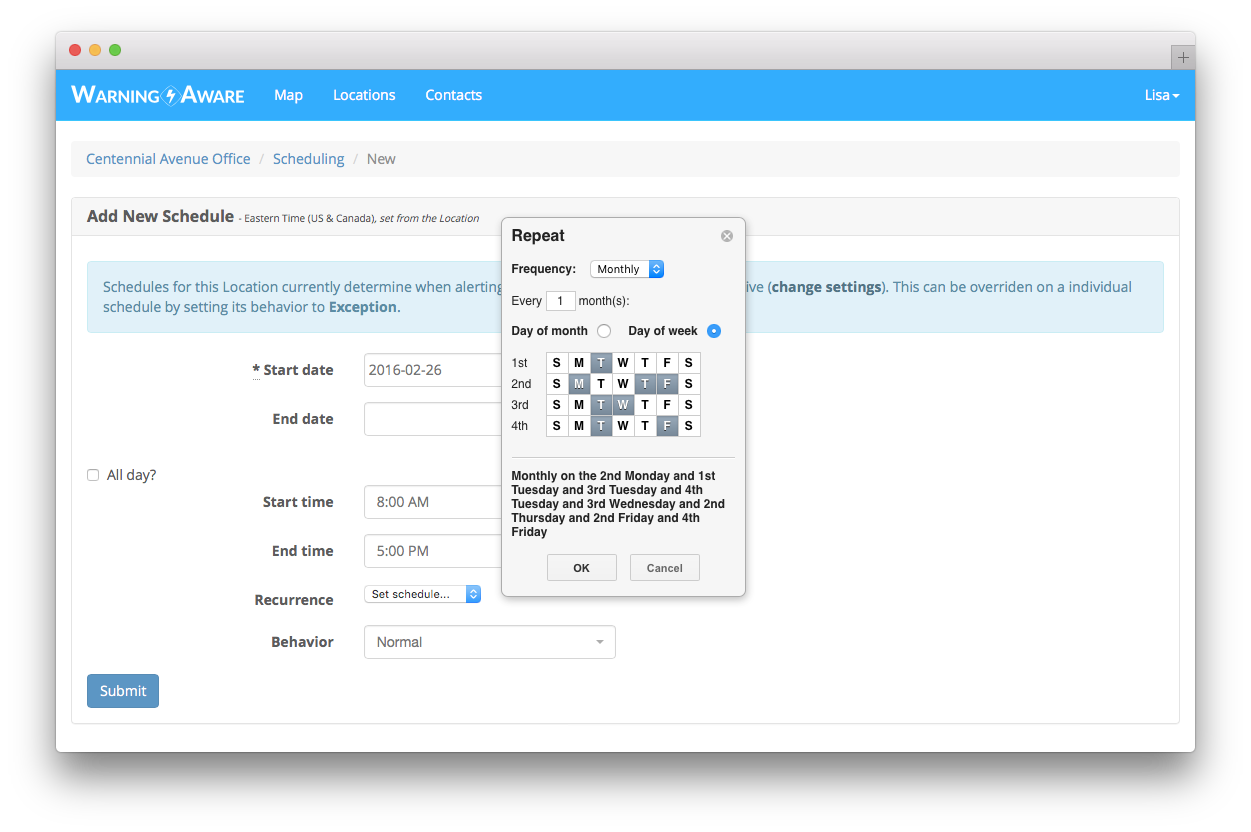
Recurrence patterns, exceptions.
Schedules allow you to define exactly when notifications are sent or suppressed. They can be temporary or recurring based on a defined pattern (daily, weekly, monthly, yearly, certain days of the week, certain days of month, etc).
Practically any pattern or date/time period can be modeled. Exceptions can be defined to temporarily override a recurrence pattern.
Calendar views to visualize.
A calendar view allows you to easily visualize when notifications are either active or disabled for a particular resource.
Everything can have a Schedule.
You can set schedules for an entire location or a particular policy. Individual contacts can each have their own schedule as well.
This allows you to set regular working hours, quiet times, and handle vacations and other scenarios.
Schedules work with rule-based notifications. When a contact's schedule prevents it from receiving notifications, the next person in the list is automatically notified.
Slack Integration
Receive alerts on mobile or desktop via Slack.
Slack notifications can be sent to a group channel or as a direct message to a specific person on your team.
Once configured you can receive push notifications of alerts on your mobile device, desktop, or web browser.
Easy contact management.
Global contact list, assignable to locations.
Once added to the system contacts can then be assigned to locations in positions to automatically generate rule-based notifications.
Contact Groups
Organize contacts into groups to to notify them all at once via Broadcasts. Employees, students, parents, relatives of employees; segment them anyway you wish.
Contacts can each have multiple phone numbers and email addresses with a designated primary phone and email.
Reliable notification.
Real, two-way SMS.
We do not use cheap yet unreliable email to SMS gateways like other services.
Alerts can be acknowledged by replying to the text message notification in addition to clicking on the provided link.
Built to scale.
A distributed software architecture allows us to handle an increasing number of alerts and notifications without impacting the quality of our service.
First class mobile experience.
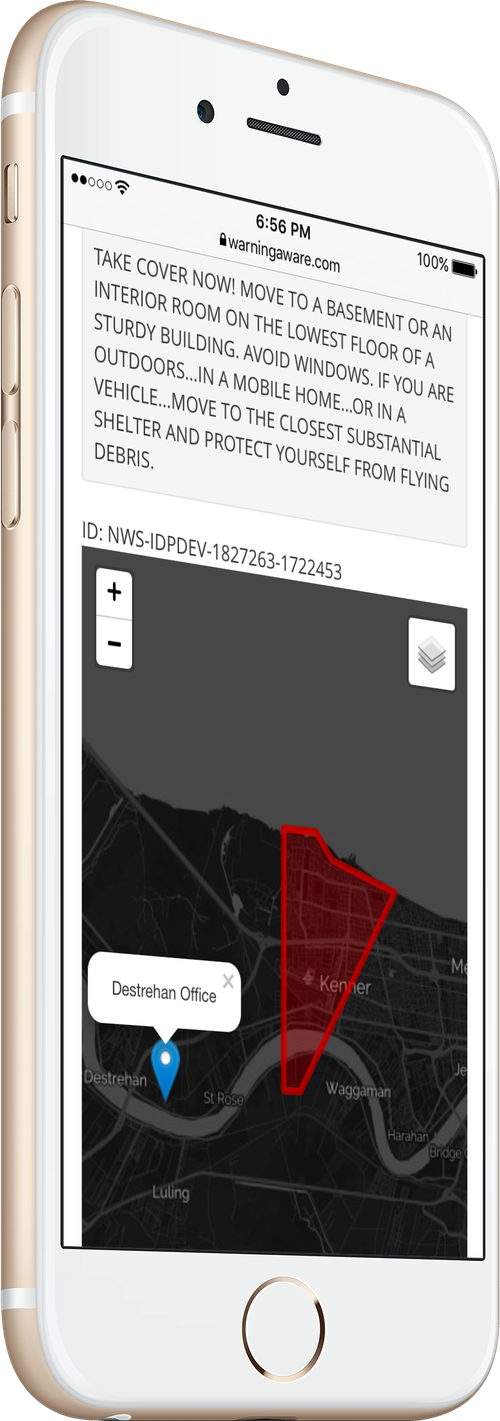
Responsive Design
The entire application utilizes responsive design, insuring alerts look great on any screen.
Social friendly
Each notification contains a sharable URL of the alert impacting a location. Other users do not need an account to view the alert information.
Full transparency.

Dashboard
Our beautifully designed dashboard lets you view recent alerts, notifications, and other activity at a glance.
History
View your entire history of alerts and notifications. See the status of each notification and who it was sent to and which policy triggered it.
No Credit Card Required
14 day Free Trial
- 2 Locations
- Reliable Alerting
- Automatic Escalation
- Advanced Scheduling
Free Trial limitations: 14 days, two additional contacts, 100 notifications total.
